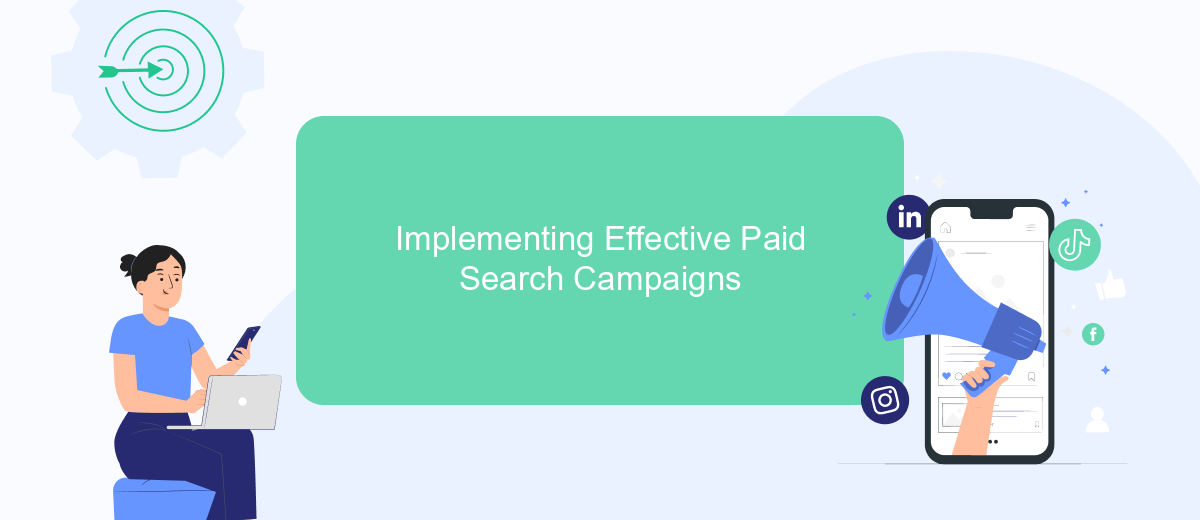Paid search lead generation is a powerful digital marketing strategy that enables businesses to reach potential customers through targeted advertising on search engines. By leveraging pay-per-click (PPC) campaigns, companies can increase their online visibility, attract high-quality leads, and drive conversions. This article explores the fundamentals of paid search lead generation, offering insights into effective strategies, tools, and best practices to maximize return on investment and grow your business.
Understanding Paid Search for Lead Generation
Paid search is a powerful tool in the digital marketing arsenal, especially for lead generation. It involves placing ads on search engine results pages (SERPs) to capture the attention of potential customers actively searching for relevant products or services. By targeting specific keywords, businesses can ensure their ads appear when users are most likely to convert, making paid search an effective way to drive high-quality leads.
- Targeted reach: Ads appear only for specific, relevant search queries.
- Cost control: Set budgets and bids to manage spending effectively.
- Measurable results: Track clicks, conversions, and ROI with precision.
- Quick implementation: Launch campaigns swiftly and adjust in real-time.
- Enhanced targeting: Utilize demographics, location, and device targeting.
Effective paid search strategies involve continuous optimization, including A/B testing ad copy, refining keyword lists, and adjusting bids based on performance data. By leveraging analytics, marketers can gain insights into which strategies yield the best results, allowing for data-driven decision-making. Ultimately, understanding and utilizing paid search can significantly enhance lead generation efforts, resulting in increased customer acquisition and business growth.
Crafting a Winning Paid Search Strategy

Creating a successful paid search strategy begins with thorough keyword research. Identify the terms and phrases your target audience is searching for and prioritize those with high relevance and intent. Use tools like Google Keyword Planner to refine your list and focus on long-tail keywords that are less competitive but highly specific. Craft compelling ad copy that resonates with your audience and includes strong calls to action. Ensure your landing pages are optimized for conversions, providing a seamless user experience and clear value propositions.
Tracking and analyzing performance is crucial to refining your strategy. Utilize platforms like Google Analytics to monitor key metrics such as click-through rates, conversion rates, and cost per acquisition. Consider integrating services like SaveMyLeads to automate the process of capturing and managing leads, ensuring no opportunity is missed. Continuously test and adjust your campaigns, experimenting with different ad formats, targeting options, and bidding strategies to maximize ROI. By staying agile and informed, you can fine-tune your approach to achieve sustained success in paid search lead generation.
Implementing Effective Paid Search Campaigns

Implementing effective paid search campaigns is crucial for generating quality leads and maximizing return on investment. To start, it's essential to conduct thorough keyword research to identify terms that potential customers are likely to use when searching for products or services similar to yours. Crafting compelling ad copy that resonates with your target audience is equally important, as it directly influences click-through rates and conversion rates.
- Define clear campaign objectives and align them with your overall marketing goals.
- Conduct comprehensive keyword research to identify high-intent search terms.
- Create engaging ad copy that includes strong calls to action and relevant keywords.
- Optimize landing pages to ensure they are user-friendly and aligned with the ad content.
- Continuously monitor and adjust bids to achieve optimal ad placement and cost efficiency.
By following these steps, businesses can create paid search campaigns that effectively capture the attention of prospective customers and guide them through the sales funnel. Regular analysis and optimization are key to maintaining campaign performance, allowing marketers to adapt to changing market conditions and consumer behaviors. Ultimately, a well-executed paid search strategy can significantly enhance lead generation efforts and drive business growth.
Optimizing Your Campaigns for Maximum ROI

To achieve the best return on investment (ROI) from your paid search campaigns, it's crucial to continuously optimize your strategies. Start by analyzing your current performance metrics to identify areas for improvement. Focus on key performance indicators such as click-through rates (CTR), conversion rates, and cost-per-acquisition (CPA) to gain insights into your campaign's effectiveness.
Once you have a clear understanding of your campaign's performance, implement changes that can enhance your ROI. Consider adjusting your ad copy, targeting options, and bidding strategies to better align with your audience's needs and behaviors. Regular A/B testing can also help you determine which variations yield the best results.
- Refine your keyword list to focus on high-performing terms.
- Utilize negative keywords to filter out irrelevant traffic.
- Optimize landing pages to improve user experience and conversions.
- Leverage ad extensions to provide additional information and increase visibility.
By continuously monitoring and refining your campaigns, you can maximize your ROI and ensure that your paid search efforts are cost-effective. Remember that optimization is an ongoing process, requiring regular analysis and adjustments to stay ahead of the competition and meet your business goals.
Measuring and Analyzing Your Paid Search Success
Effectively measuring and analyzing your paid search success is crucial for optimizing your lead generation efforts. Start by setting clear and measurable goals, such as cost per lead, conversion rate, and return on ad spend. Utilize tools like Google Analytics and Google Ads to track these metrics in real time. Pay attention to key performance indicators (KPIs) that align with your objectives, and regularly compare your results against industry benchmarks to ensure your campaigns are on the right track. By continuously monitoring these metrics, you can make informed decisions to refine your strategies and improve your results.
In addition to traditional analytics tools, consider integrating automated solutions like SaveMyLeads to streamline data collection and analysis. SaveMyLeads allows you to automatically transfer lead data from your paid search campaigns to your CRM or other marketing platforms, ensuring you have accurate and up-to-date information at your fingertips. This integration not only saves time but also reduces the risk of human error, enabling you to focus on strategic adjustments that drive better outcomes. By leveraging these technologies, you can gain deeper insights into your campaigns and enhance your overall paid search success.
FAQ
What is Paid Search Lead Generation?
How can I improve my Paid Search Lead Generation strategy?
What are the benefits of using automation in Paid Search Lead Generation?
How do I track the effectiveness of my Paid Search campaigns?
What role does landing page optimization play in Paid Search Lead Generation?
Use the SaveMyLeads service to improve the speed and quality of your Facebook lead processing. You do not need to regularly check the advertising account and download the CSV file. Get leads quickly and in a convenient format. Using the SML online connector, you can set up automatic transfer of leads from Facebook to various services: CRM systems, instant messengers, task managers, email services, etc. Automate the data transfer process, save time and improve customer service.
